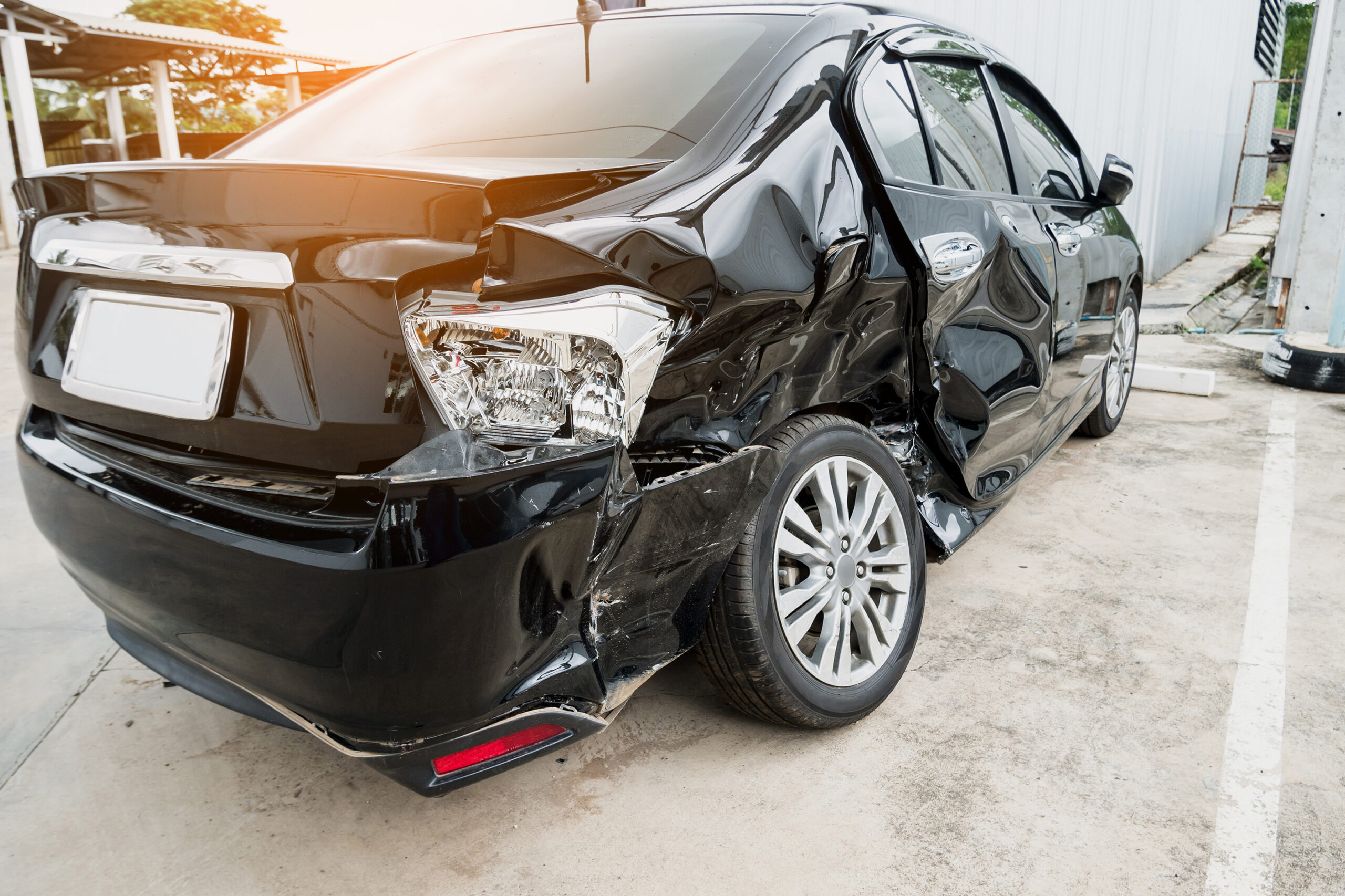
Top Insights From a Vehicle Property Damage Lawyer
If you’ve been in an auto accident, you’re likely trying to figure out if you need a vehicle property damage lawyer. Likewise, you’re probably trying to understand exactly how insurance claims work. You may also be dealing with injuries — such as neck injuries, headaches, or hip pain — as the result of your accident.
The first thing to understand about your accident is that you have two separate and distinct claims: a vehicle property damage claim and, potentially, a bodily injury claim. And since the symptoms of an injury can sometimes be delayed, it’s important to be very careful when dealing with insurance companies.
Below, we’re going to focus primarily on vehicle property damage lawyer insights, because transportation is essential and you want to ensure that you’re doing everything you can to get the recovery you deserve. But remember that while these two claims — property damage and bodily injury — are separate, they are also related to one another. If you have further questions, or if you want to understand the specifics of how these claims are related in your case and how to maximize your compensation, feel free to contact us for a free consultation.
4 Insights From an Alabama Vehicle Property Damage Lawyer
With 27 years of experience as a car accident attorney in Alabama, we understand the many complexities of property damage law and how it relates to many parts of a car accident claim. To help you think like a vehicle property damage lawyer, we put together this list of four insights into property damage claims in Alabama. If you’d like to talk to a lawyer and discover more about the specifics of your case, feel free to reach out anytime.
Insight #1: Understanding the Parts of a Vehicle Property Damage Claim
After an auto accident, dealing with vehicle property damage claims can seem overwhelming. This process involves several key steps, from documenting the damage to understanding your insurance coverage and effectively communicating with insurance adjusters. Below, we break down these steps to help you navigate this complex process more confidently.
Documenting the Damage
Right after the accident, if it’s safe to do so:
- Photograph the Scene: Take clear pictures of the damage to your vehicle from multiple angles, ensuring the extent of the damage is well-documented.
- Gather Information: Note down the time, date, and location of the accident. Collect contact and insurance information from the other party involved, if applicable.
- Police Report: If the police arrive at the scene, a report will be filed. Obtain a copy as it’s a valuable piece of evidence when dealing with insurance companies.
Filing Your Claim
- Understand Your Coverage: Review your insurance policy to understand what’s covered under your collision and comprehensive coverage.
- Initiate the Claim: Contact your insurance company as soon as possible to start the claims process. Be prepared to provide all the information and documentation you’ve collected.
Dealing with Insurance Companies
- Communicating Your Claim: Clearly describe the incident and the damage. Provide the evidence you’ve gathered to back up your claim.
- Dealing with Adjusters: Insurance adjusters will assess the damage to determine the payout. It’s crucial to understand that their initial offer is not final—you can negotiate.
- Knowing Your Rights: If you feel the assessment or the offered compensation is unfair, you have the right to dispute the claim. This may involve getting an independent appraisal or reaching out to a car accident attorney.
More Tips for a Smooth Process
- Timely Communication: Respond promptly to any requests from your insurance company for additional information or documentation.
- Record Keeping: Keep a detailed record of all communications with the insurance company, including dates, times, and the content of discussions.
- Professional Guidance: Consider consulting with a vehicle property damage lawyer if you encounter challenges during the claim process. Legal experts can offer guidance, negotiate on your behalf, and ensure that your rights are protected throughout the process.
By understanding these steps and preparing accordingly, you can navigate the complexities of vehicle property damage claims more effectively, ensuring that you receive the compensation you deserve for your losses.
Insight #2: A Vehicle Property Damage Lawyer Can Be a Valuable Ally
After an auto accident, the decision to hire an attorney may not be immediately obvious. However, an experienced accident attorney can provide invaluable assistance and significantly impact the outcome of your property damage and personal injury claims. Below, we outline specific ways that working with vehicle property damage lawyer can help you achieve the best possible results for your claim.
Knowledgeable Evaluation of Your Claim
- Accurate Damage Assessment: Vehicle property damage lawyers have the experience and resources to accurately assess the extent of your property damage, ensuring that all costs of repair or replacement are fully accounted for.
- Understanding Depreciation: A skilled vehicle property damage lawyer can argue against unfair depreciation of your vehicle’s value, ensuring you receive the rightful compensation.
Strategic Negotiation With Insurance Companies
- Leveraging Experience: A vehicle property damage lawyer is well-versed in negotiating with insurance companies. They know the tactics these companies use and how to counter them effectively.
- Maximized Settlements: Insurance companies often offer lower settlements to individuals without legal representation. A vehicle property damage lawyer will fight for a fair settlement that truly reflects the damage and losses you’ve incurred.
By providing professional valuation, strategic negotiation, and dedicated legal representation, a vehicle property damage lawyer plays a pivotal role in ensuring your rights are protected and you receive the compensation you deserve.
Insight #3: Recognizing the Difference Between Vehicle Property Damage and Bodily Injury Claims
Understanding the distinctions between property damage and bodily injury claims is crucial when navigating the aftermath of an auto accident. These two types of claims are handled differently, have different legal considerations, and offer different types of compensation. Here’s a detailed breakdown to help you understand these differences.
Fundamental Differences Between Vehicle Property Damage and Bodily Injury Claims |
|
|
Nature of Claims |
Vehicle Property Damage Claims: These claims cover the costs to repair or replace your vehicle and any personal property damaged in the accident. Bodily Injury Claims: These claims are filed to cover the costs associated with physical injuries resulting from the accident, including medical expenses, lost wages, and pain and suffering. |
|
Legal Considerations |
Liability and Fault: Establishing fault is crucial in both claims, but the process can be more complex in bodily injury cases due to the need to demonstrate the extent of injuries and their direct link to the accident. Statute of Limitations: For most cases, the time limit for filing property damage and injury claims in Alabama for most cases is two years. |
|
Types of Compensation |
Vehicle Property Damage: Compensation typically covers the repair or replacement value of your vehicle and damaged belongings. Bodily Injury: Compensation can include current and future medical expenses, rehabilitation costs, lost wages, and compensation for pain and suffering. |
|
The Intersection of Vehicle Property Damage and Bodily Injury Claims |
Integrated Approach: While these claims are separate, they are often interconnected. The handling of one can impact the other, especially when negotiating settlements or when policy limits are involved. Coordinated Strategy: It’s crucial to have a coordinated strategy for both claims. An experienced vehicle property damage lawyer can ensure that the pursuit of one claim does not adversely affect the other and that you receive fair compensation for all aspects of your claim. |
Understanding these differences and how property damage and bodily injury claims interplay is vital for a comprehensive approach to securing fair compensation. It’s advisable to consider the entire scope of the accident’s impact when pursuing your claims. This comprehensive understanding, paired with experienced legal guidance, can significantly enhance your ability to navigate the claims process effectively.
Insight #4: Recognizing Policyholder Rights and Insurance Company Obligations
Navigating an auto accident claim requires not just an understanding of the damages incurred but also a deep awareness of your rights as a policyholder and the obligations of your insurance company. This knowledge can empower you to advocate for your interests effectively and ensure that the insurance process works as it should. Here’s a detailed look into the rights and obligations that play a crucial role in the claims process.
Policyholder Rights
Right to Fair Treatment: As a policyholder, you are entitled to fair and respectful treatment from your insurance company. This includes timely responses to your inquiries and claims.
Right to a Thorough Investigation: You have the right to a comprehensive and objective investigation of your claim. The insurance company is obligated to assess all evidence fairly.
Right to Information: You should be provided with all relevant information regarding your claim, including an explanation of the insurance company’s decisions regarding coverage and compensation.
Right to Privacy: Your personal information should be protected, and the insurance company should respect your privacy throughout the claims process.
Insurance Company Obligations
Duty to Defend: If you are sued following an accident, your insurance company has an obligation, in most cases, to provide a defense for you, depending on your policy terms.
Good Faith and Fair Dealing: Insurance companies are required to handle claims with good faith, meaning they should not look for unreasonable grounds to deny claims or reduce payouts.
Prompt Communication and Settlement: Companies must acknowledge and act on claims promptly. They should provide timely updates and settle claims within a reasonable timeframe once liability is clear.
Understanding your rights as a policyholder and the obligations of your insurance company can significantly influence the outcome of your claim. It ensures that you are not at a disadvantage and provides a basis for seeking fair treatment and compensation. Armed with this knowledge and, if necessary, the support of a vehicle property damage lawyer, you can navigate the insurance claim process more confidently and effectively.
Contact Jay Pickering Law Firm To Discuss Your Vehicle Property Damage Claim
Jay Pickering Law Firm is dedicated to advocating for individuals who have endured injuries resulting from from car accidents, truck accidents, and motorcycle accidents. Based in Birmingham, our reach extends to communities across urban, suburban, and rural regions throughout the state. If you or a loved one has been impacted by an accident, our mission is to safeguard your rights and secure the compensation you rightfully deserve.
If you have questions about an accident you’ve experienced, including issues related to vehicle property damage and bodily injury claims, we are here for you. Contact us anytime for a 100% free case review.

Attorney Jay Pickering brings over 27 years of unwavering dedication to personal injury law, with a sharp focus on representing those injured in car, truck, and motorcycle accidents across Alabama. A proud alum of the University of Alabama School of Law, Jay is a member of the Alabama State Bar and the American Bar Association.

